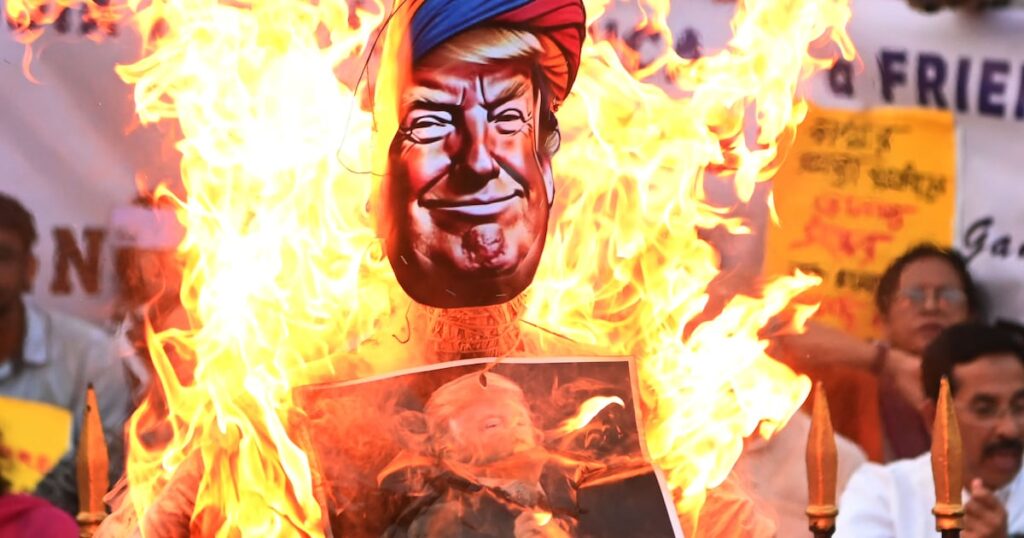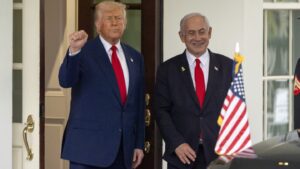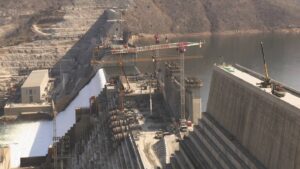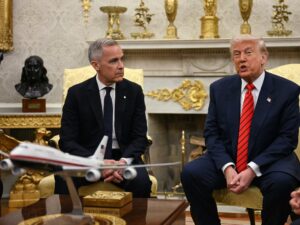
In a dramatic turn of events, Pakistan has condemned U.S. President Donald Trump for launching airstrikes on Iran, just hours after nominating him for the Nobel Peace Prize. The initial nomination praised Trump for his role in defusing a diplomatic crisis between India and Pakistan, which had escalated following a massacre in Indian-controlled Kashmir. This incident had brought the two nuclear-armed neighbors perilously close to conflict.
Pakistan’s government, keen to highlight what it saw as a diplomatic victory over India, announced the nomination in a social media post, lauding Trump for his “decisive diplomatic intervention and pivotal leadership.” However, the situation quickly shifted when reports emerged of U.S. airstrikes on Iran, an ally of Pakistan, prompting Islamabad to issue a strong condemnation. The Pakistani government labeled the strikes as a “serious violation of international law” and criticized them for contravening the statutes of the International Atomic Energy Agency.
Background of the Diplomatic Crisis
The nomination and subsequent condemnation come against the backdrop of heightened tensions in the region. In April, a deadly attack in Kashmir led to a severe escalation between India and Pakistan. Both countries have a long history of conflict over the disputed region of Kashmir, which has been a flashpoint for numerous military confrontations since their independence in 1947.
Trump’s involvement was reportedly aimed at mediating a truce, a move that Pakistan viewed favorably. The announcement of his Nobel nomination followed a high-profile meeting between Trump and General Asim Munir, the head of Pakistan’s armed forces. This meeting was seen as a strategic alignment, with Pakistan eager to leverage international support against India.
International Reactions and Implications
The airstrikes on Iran have not only strained U.S.-Pakistan relations but have also drawn widespread international criticism. Iran, a key regional player, has accused the United States of aggression, further complicating an already volatile geopolitical landscape.
According to defense analyst Dr. Ayesha Siddiqua, “The airstrikes have put Pakistan in a precarious position. On one hand, they seek to maintain good relations with the U.S., while on the other, they cannot afford to alienate Iran, a crucial ally in the region.”
“This incident underscores the complex web of alliances and enmities in South Asia and the Middle East. It highlights the challenges Pakistan faces in balancing its diplomatic relations,” Siddiqua added.
Historical Parallels and Future Prospects
This incident is reminiscent of past geopolitical maneuvers where nations have had to navigate the intricacies of international diplomacy. The Cold War era, for instance, saw similar instances where countries had to balance alliances with superpowers while managing regional conflicts.
Looking forward, the situation raises questions about the future of U.S.-Pakistan relations and the broader implications for regional stability. The reversal of Pakistan’s stance on Trump’s Nobel nomination may also impact its diplomatic credibility on the global stage.
Meanwhile, India has dismissed claims of Trump’s involvement in resolving the Kashmir crisis. An Indian government spokesperson stated, “There has been no third-party intervention, nor will there ever be. The situation in Kashmir is an internal matter, and any attempts to internationalize it are firmly rejected.”
Conclusion and Next Steps
As the dust settles, the Pakistani government has yet to issue further statements regarding the Nobel Peace Prize nomination. The incident serves as a stark reminder of the delicate balance of power in international relations and the rapid shifts that can occur in global diplomacy.
Observers will be closely watching how Pakistan navigates its relationships with both the U.S. and Iran in the coming months. The outcome could have significant implications for peace and stability in the region, as well as for Pakistan’s role on the international stage.





